Hi All! Happy holidays. For those of you looking for a more article/blog experience from me, consider heading over to Substack.
I’ve set up shop there and will be posting writerly how-tos and author interviews. Check it out here.

Hi All! Happy holidays. For those of you looking for a more article/blog experience from me, consider heading over to Substack.
I’ve set up shop there and will be posting writerly how-tos and author interviews. Check it out here.
Hey besties. After a lot of thought and too much Yorkshire tea (yes, I keep mentioning them in every post and at some point they’re going to start sending me free tea), I’ve decided to move all my blog-style content, sneak peeks, and behind-the-scenes updates over to Patreon where it’s easier for me to share everything in one place and build a more connected community. (Also, I find the posting of videos so much easier on Patreon).
Starting in September, Patreon will be my home base for:
And you don’t have to pay to join me. Patreon now has free memberships, which means you’ll still get which still gives you access to some of the fun stuff.
If you do want the extras like full flash pieces, extended excerpts from TLGITW and other works in progress, Finn in Five videos, and deeper craft content — there are paid tiers starting at just $2/month. But no matter what level you join at, you’ll be part of the community where everything is happening and there will always be some stuff for the free members, too.
Check it out here.
Thank you for being here, for reading my words, for supporting Five Questions With for so long, and for helping me keep building spaces where my weird little stories have a space to be appreciated.
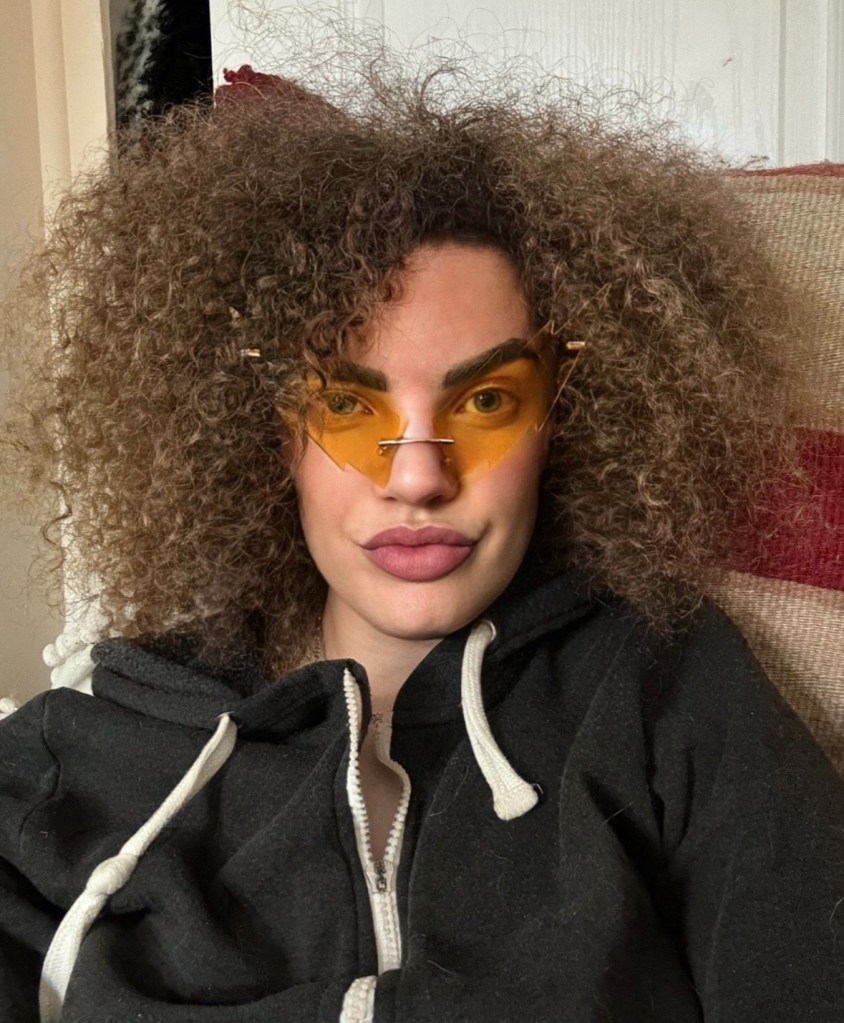
Welcome to Five Questions With—An interview series where I talk with some of my favourite writers, publishers, agents, and other industry folks. This week I’m talking with Murgatroyd Monaghan about the politics of erasure, what it means to write Autistically, and why poetry should sometimes hurt.
Your book, white spaces where we learn to breathe is already creating a huge buzz of excitement in pre-release. What is the heart of this project and what can readers expect from it?

This question makes me so happy! The heart of this project is the question of white spaces: what spaces are white spaces, how did they become that way, how do we all navigate them and exist within them, and how conscious are we of allowing vs challenging white space? Also, what have the consequences erasing BIPOC spaces been? Our land is Indigenous land that has been annexed and coopted by white people, who inserted white spaces here, and who now largely make the rules that govern the spaces we live within. But what if we refused to follow those rules? What if we rewrote – or unwrote – those rules to change the spaces we exist in? What about in the literary world? As an artist, my preferred medium is language, and I wanted to explore this concept of white space visually, inserting text onto the page in uncomfortable ways that challenge what those of us who are used to existing in white spaces might be familiar with. It’s the experiment that never ends, because even now, as I plan my book tour for this summer/fall, I find myself asking: where should I book this reading? In a BIPOC owned/led space? Or should I insert this book and its poems into traditionally white space? As to what folks can expect, please expect a meditative collection of poems that honour the lives of BIPOC who lived and died in white spaces as well as poems that reckon with the experiences of myself, my family members, my community members, or others, as we navigate the ways whiteness takes up space in our lives, minds, and bodies.
You are so honest and real in your conversations about neurodivergence and creativity. What is something you wish the publishing world understood about making more inclusive spaces and processes for neurodivergent writers?
Neurodivergent people are some of the most creative people I know. I’m going to maybe upset some people here, but I think embraced neurodivergence is a marker of an excellent artist/writer. To be an artist, a poet, a writer, is to challenge the norm. It is to live in the margins of society and experience humanity in a different way. Neurotypicality, by definition, is comfortable. It’s what we’re most comfortable with. Society consumes neurodivergence for entertainment, we have these quirky characters who miss social cues and make us laugh at them, and that’s a comfortable position for neurotypicals to keep Autistics in, in general, but the same society is not comfortable with us as creators because we challenge their world view. There’s an appropriation of neurodivergent culture in popular culture, but we are constantly squeezed out of the publishing/literary world.
I’ll tell you a couple of stories. Firstly, when I started breaking into the world of spoken word, I remember I won a slam in Northern Ontario called Wordstock, and the festival organizer publicly contested my win because she said I “looked awkward”. So here we have this idea of how a spoken word poet should look, and anything that doesn’t conform is awkward, it’s uncomfortable. Another example is that recently, I received a mentorship that I couldn’t benefit from because I didn’t understand the concept of how communication should work when there’s no exact schedule for connecting (it was “connect when you’re ready” and “reach out when you feel you need it”), and then the notes on my work were written in a roundabout way that I assume was to preserve my feelings, making them unusable to me. The worst example is that often we get farmed for our creativity but then wiped out of the credit for our ideas or fired when we don’t operate neurotypically. The owner of a press reached out to me about editing a memoir for a rather prominent figure, but after I had put in hours of work into rewriting it, my work was stolen and I was removed from the project. The ghostwriter hired by the press had intentionally written something that was essentially point form and got me to ghostwrite, while only paying me very minimally for barely a copy editing fee and then removing my name. They sought me out because I was Autistic and they felt I would be easier to take advantage of and would do far more labour for nothing because I am neurologically unable to do things half-assed. Unfortunately, they were right. These are experiences I am still learning from.
Most simply though, the whole pathway of getting into writing as a career is not mapped out in an Autistically-friendly way. Like, okay, one could sign up to get a creative writing degree, if that was within one’s scope and ability and circumstance (although I would argue that’s not necessarily an ND-friendly path), but that still doesn’t show you how to get published. The whole literary world is close knit, it’s a lot of who you know, and meeting those people revolves around a lot of social events like literary festivals and book/magazine launches. That is inaccessible to a lot of us. The only reason I self-published my first book with a vanity press is because I had literally googled “how to publish a book” and when a bunch of links showed up for (what I now know are) vanity presses, I just figured that was how everyone did it. I paid all my savings to publish that book, despite a payment plan, and I didn’t have a good experience. With white spaces, I had a great experience obtaining a publishing contract, because I had used online spaces widely to be able to build community, unmask myself, and understand a lot more about the writing and publishing world.
Despite this, the publishing world needs us. There is no creativity without neurodivergence. I am planning a blog-post series for lit folks on how to make contests/lit mags/presses more neurodivergent-friendly, so keep your eyes out if that’s something you’re interested in! Adjacently, I am teaching a workshop this fall on Writing Autistically, and I’m pitching a four-week class on unmasking in writing for self-identifying neurodivergents, so watch for those too.
You write a lot about Star Trek, drugs, and women! Give me a Venn diagram of all three.
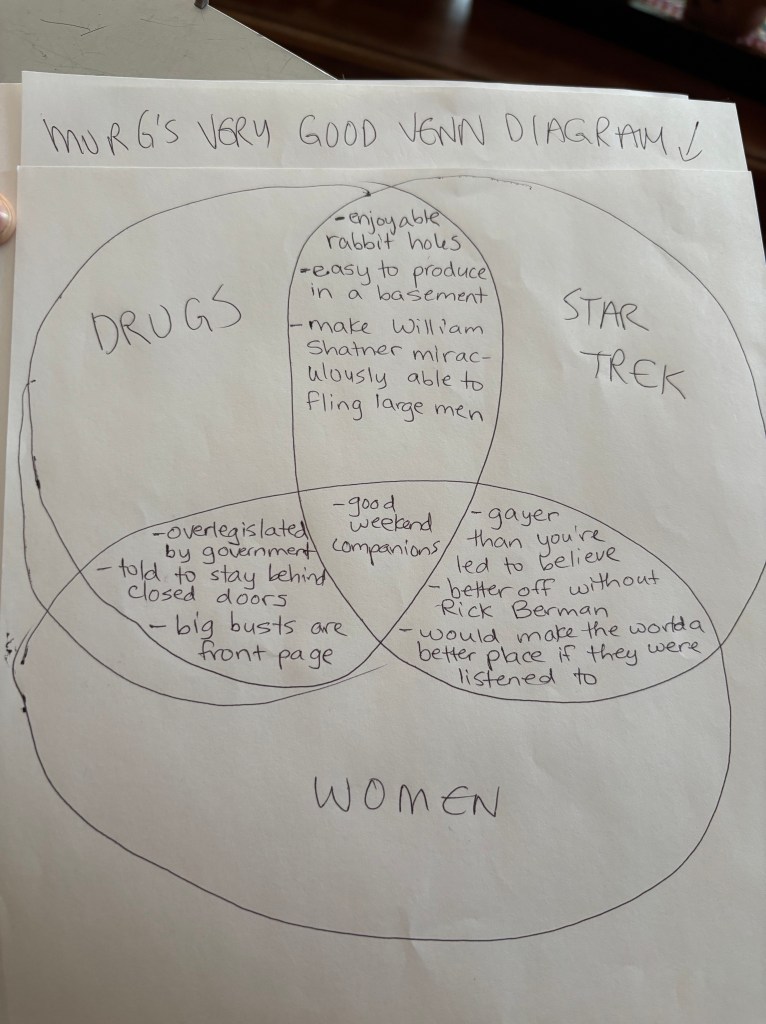
Star trek and drugs: enjoyable rabbit holes, easy to produce in a basement, make William shatner miraculously able to fling giant men
Star trek and women: Gayer than they let on, better off without rick berman, would make the world better if they were actually listened to,
Women and drugs: over-legislated by the government, told to stay behind closed doors, big busts are front page
All three: good weekend companions (Ed: Note: This whole answer is my favourite answer to anything, ever.)
What advice would you give other creatives as they navigate the sometimes overwhelming world of writing poetry?
I mean, I think that being a poet is a lifestyle choice. I have yet to see a wealthy poet or a poet of prestige who evokes the right kinds of feelings with their words. It’s hard to write good poetry from a position of privilege. It’s the art form. Poetry is a conduit for rage and grief that stem from injustices. So I think, embrace your vulnerabilities, embrace your ghosts, embrace the things that cause you mild inconvenience and deep, agonizing pain. And then challenge the systems and the people who made things that way for you. Tell the truth, and tell it with tears in your eyes and a knife between your teeth. Say it aloud, not just to yourself. You are now the intermediary; the poem lives on its own. Make it take up space. Maybe you haven’t found a publisher but every poet can find a stage. Find an open mic or a slam or a street corner and empower yourself to speak, because the world won’t make that space for you. Decolonize yourself. Forget about arbitrary and limiting colonial rules of spelling or grammar or storytelling and just say things how your soul sees them. Poetry is the jazz music of the phrase. It can take its time, it can push, it can follow no rules but the rules of the instrument and the heart, and a poet’s instrument is language. It should hurt. You, the artist, and your audience. It should cause discomfort. So if you’re already uncomfortable, you’re already a poet. You just haven’t told your story yet.
What is your favourite book and why?
The Hitchhiker’s Guide to the Galaxy by Douglas Adams
Reproduction by Ian Williams
When We Lost Our Heads by Heather O’Neill
Little Bee by Chris Cleave
I just really think everyone should read these books. They’re everything writing should be: brilliant, experimental, brave, true, strong, neurodivergent af. They follow no formula but the story, and stories happen in the mind and the body before they happen on the page.
Bonus question: Have you ever taken a picture of a weird bird?
Only a bird-of-prey. But I submit here this photo of my weirdo 30-lb cat, Thomas (Smoke Signals, in case you want the reference; also one of the greatest ND characters of all time) who gives me this look when I’m planning on writing on my laptop instead of feeding him.
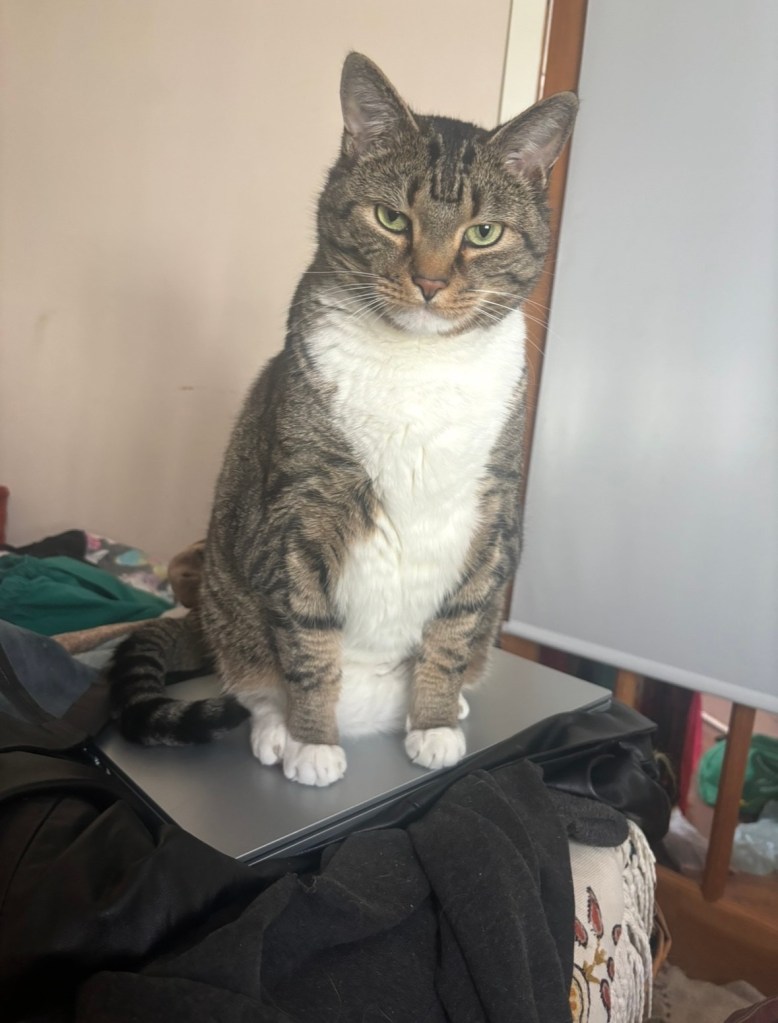
Murgatroyd can be found on the web here and white spaces where we learn to breathe can be preordered here.
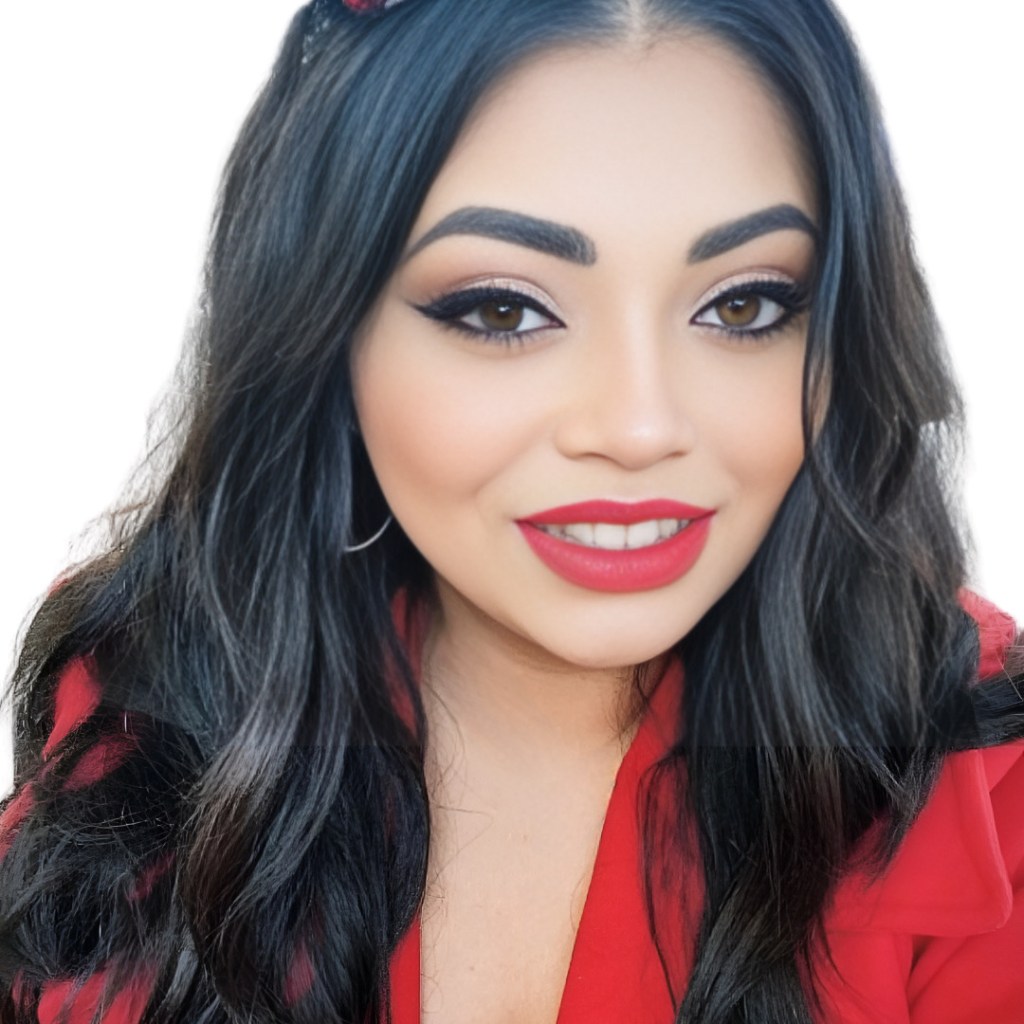
Welcome to Five Questions With—An interview series where I talk with some of my favourite writers, publishers, agents, and other industry folks. This week, I’m excited to talk with Tasneem Alam about werewolf heroines, emotional world building, and how characters can surprise you into writing your best work.
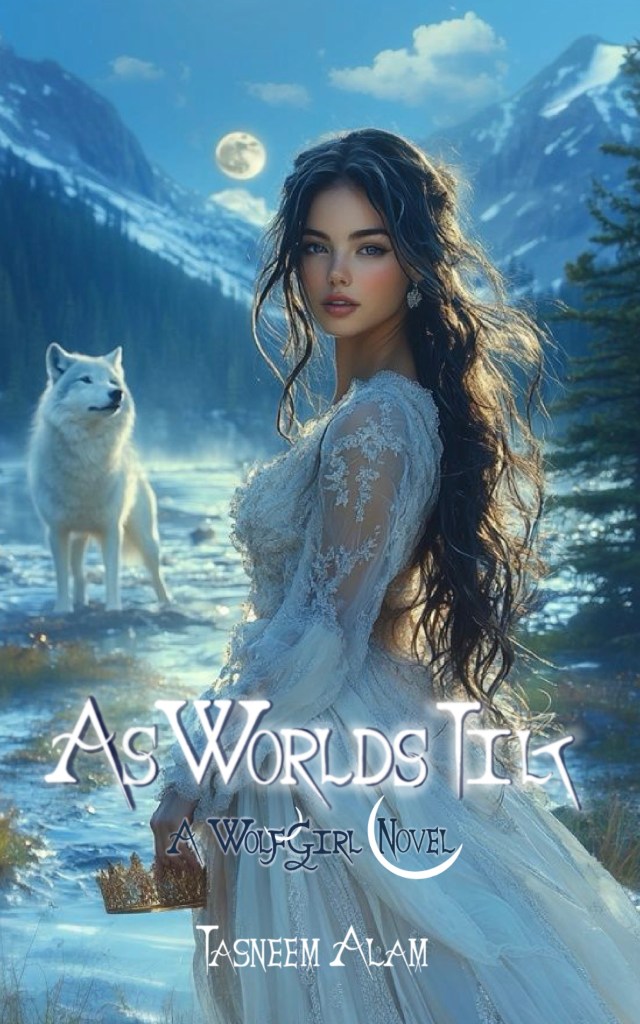
I’m excited about your series WolfGirl. What can you tell me about that series as a whole, and specifically about Truths Collide, the next book in the series?
Thank you! I’m thrilled you’re excited about WolfGirl! This series follows (will follow) three shifter women, each finding themselves at a crossroad between what they expected life to be and the reality of who they are becoming. It plays on the idea of we plan and the universe plans, and we ultimately end up where we were always meant to be.
In As Worlds Tilt, we meet Rose Craving—the first female shifter to turn into a white wolf, a form historically reserved for men of royal blood. Though she’s a princess and a direct descendant of the very first shapeshifter, Rose’s transformation sparks a change in the supernatural world. Her story sets the foundation of my supernatural world.
The next book in the series, Truths Collide, shifts focus to Scarlett Belmont—a former high school cheerleader from a Beta bloodline who’s caught in a storm of betrayal, secrets, and ancient powers. This book pushes everything further to a darker storyline, the heartbreaks, and the ongoing supernatural war that was introduced in As Worlds Tilt. Truths Collide touches heavily on self-discovery and rebuilding an identity for your own self. Scarlett was always the golden girl, the perfect daughter, girlfriend, and found herself entering a life to please everyone around her. She convinced herself that’s what she wanted too, until her transformation night when a ghost from the past resurfaces, making her question the life she’s set up for herself. Truths Collide takes place ten years after Rose’s story so we also get to see how Rose and other characters from the first book has evolved.
The third book is still to come 🙂
Do you have any advice on world-building? What do you prioritize when it comes to creating a strange world?
I like to world-build as the story unfolds. You can’t create an entire universe in an outline—at least, not one that feels alive and real. Sometimes the best parts of a world emerge while writing: a new idea sparks, a plot thread takes a different turn, or an origin story evolves into something far more compelling than what was planned. It’s part of the magic and one of my favorite things of being a writer. Sometimes the story, the world, tells me where it wants to go.
Series are especially powerful for this because you don’t have to confine everything to one book. You get space to build slowly, through different characters, timelines, and layers of lore and pages to explore.
What I prioritize most is how my characters feel about the world. Their perception creates emotional grounding. WolfGirl is a great example of that. In As Worlds Tilt, we see the world through Rose—a royal with access to supernatural politics and inner knowledge. But in Truths Collide, Scarlett’s perspective is completely different. Her world feels more threatening, more guarded. The shifts in viewpoints shapes the tone, and the way readers experience the world.
Is there a moment from Truths Collide that you can’t stop thinking about? A certain character you fell in love with more than any others?
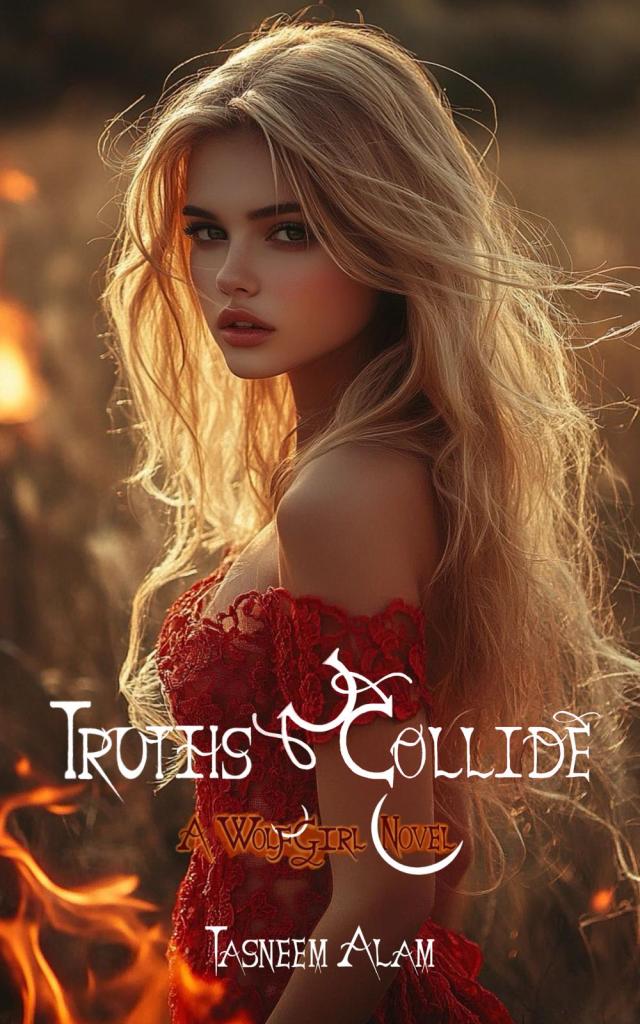
Oh there are many! Truths Collide is a story that’s lived with me for a long time, and some scenes genuinely brought me to tears as I wrote them. The moments that stay with me most are Scarlett’s interactions with her family and best friends. They’re tender and full of love. She has a deep relationship with each of her family members and you can tell she’s deeply loved. Also the fierce loyalty between her and her friends and the way they have her back is really sweet.
If I’m being honest, the character I truly fell in love with was Scarlett, herself. When my editor read the first draft, she told me she wanted more from Scarlett—more depth, more vulnerability, more growth. So I dug deeper and the more I wrote, the more I realized how much strength, grace, and resilience she carried. She’s raw, she’s grieving. She was a girl who had everything, lost it, and then rose from the ashes into her own power.
Marketing is so hard. What advice would you give other writers on how to build an author brand and create buzz for their work?
Marketing is so hard! I’m definitely not an expert and I’m learning every day. But one thing I’ve realized is how important community is. Networking, finding author friends, supporting each other’s work. It really does go a long way!
It helps to pay attention to themes, stay up to date with what other authors are doing, and notice what gets readers excited. Content creation for marketing can be a chore and so time consuming where we would just rather be writing! But when I need a break from writing, Canva is my best friend. Having a theme and templates created around it can make the process smoother. But more than anything, you have to have fun with it. Show up as yourself. Be genuine and build real connections.
At the end of the day, yes our books are our products. But we are the brand as the author. Readers connect with us just as much as the stories we tell. So don’t be afraid to share the process, your passions, or your personality. The followers and sales will come but don’t forget why you started writing in the first place. Don’t ever lose that in a world of algorithms.
Bonus question: Have you ever taken a picture of a weird bird?
It was too pretty and aesthetically pleasing not to take a picture of this guy chilling. Birds are inspiring.
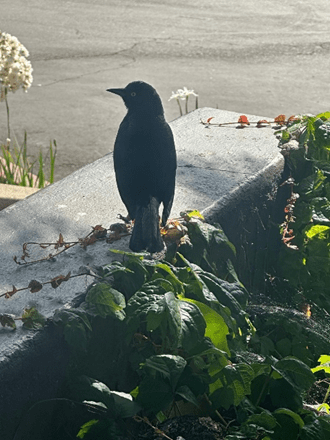
Tasneem can be found on Instagram
To buy:
Heyyyyyy! When I posted last time, I was still in the middle of Hell-May, but nearing the end of my month of madness… And now I’ve survived my 21 zoom classes. 80K of client feedback. A desperate pants-related road trip.
I’m now writing this from the actual middle of the Alexandra Writers’ Centre annual retreat and I have to say, it’s weird. In a good way, I mean. It’s like– quiet. We had s’mores and talked. Andrew and I gave our workshops. Today, we’ll all go our separate ways, back to our lives, but hopefully taking something important with us. The power of community.
In the middle of all my crazy busyness of last month, I’d forgotten how much I love just getting to sit and talk with writers, to hear their ideas, to talk about their processes. We all have such different ways of getting the words out and it’s gratifying to be reminded of that. This idea that most of us aren’t out there pounding out words every single day. Many of us have families and so many projects and absolutely frenetic lives. A lot of the participants also have kids and pets and day jobs.
It’s so important to remember that the only writing process that works is the one that works for you. People will try to sell you on their program, on their idea of the best way to be a writer. But ultimately, the process that keeps you joyfully creating is the one that works for you.
I’ll be back next week with another Five Questions With. In the meantime, I hope you do some creating this week. I hope it’s joyful.